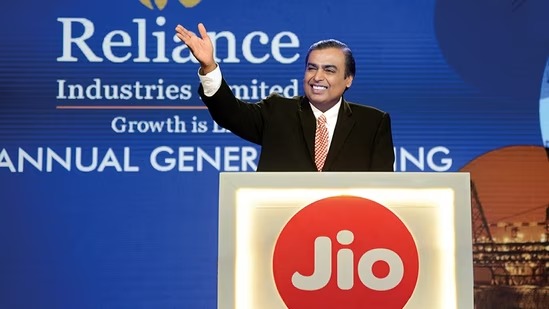
Reliance Faces CBI Probe Over ₹13,700 Crore ONGC Gas Theft Allegations
Bombay High Court Issues Notice in High-Profile Energy Case
CBI Asked to Investigate Corporate Accountability in India’s Oil & Gas Sector
By Our Legal Reporter
New Delhi: November 13, 2025:
India’s energy sector has been shaken by serious allegations against Reliance Industries Limited (RIL). Reports suggest that RIL may have illegally extracted natural gas worth ₹13,700 crore from fields belonging to Oil and Natural Gas Corporation (ONGC) in the Krishna-Godavari (KG) basin. The Bombay High Court has taken note of the matter and issued notices, while the Central Bureau of Investigation (CBI) has been asked to conduct a probe.
This case is not just about corporate rivalry—it raises questions about resource ownership, regulatory oversight, and accountability in India’s oil and gas industry.
Background of the Case
- The KG-D6 block, operated by Reliance, lies adjacent to ONGC’s fields in the Krishna-Godavari basin.
- ONGC alleged that Reliance was siphoning gas from its reservoirs by drilling wells close to the boundary.
- In 2015, ONGC approached the government, claiming that RIL’s operations were draining its reserves.
- The Directorate General of Hydrocarbons (DGH) appointed an international expert panel, which confirmed that gas migration had indeed occurred.
Also Read: Will Returning NRIs Pay Tax on Foreign Income? Supreme Court, CBDT Clarifications Shape Rules
The panel’s findings suggested that Reliance had benefited from ONGC’s resources without authorization, leading to a financial impact estimated at ₹13,700 crore.
Legal Developments
- The Bombay High Court has now issued notices to Reliance and other parties involved.
- The court has asked the CBI to investigate whether criminal liability can be established.
- Reliance has consistently denied wrongdoing, stating that gas migration is a natural geological phenomenon and that it operated within its licensed block.
- The case is expected to test India’s legal framework for natural resource management and corporate accountability.
Also Read: Delhi High Court Asked to Replace Retired SC Judge Over 16-Month Delay in Arbitration Award
Industry Impact
This case has wide implications:
- Energy Sector Trust: Allegations of theft undermine trust in India’s oil and gas industry.
- Foreign Investment: Global investors closely watch how India handles corporate disputes.
- Policy Reform: The government may be forced to tighten regulations on resource extraction.
- Public Interest: Since natural gas is a national resource, the case raises questions about how companies profit from assets that belong to the people.
Reliance’s Position
Reliance has argued that:
- It followed all technical and legal guidelines.
- Gas migration is a natural process and cannot be controlled.
- It has invested billions in developing the KG-D6 block and should not be penalized for geological factors.
Despite these claims, critics argue that Reliance should have disclosed the possibility of cross-boundary extraction and worked with ONGC to resolve disputes.
ONGC’s Stand
ONGC maintains that:
- Reliance deliberately drilled wells near the boundary to capture migrating gas.
- The company suffered huge losses due to Reliance’s actions.
- Compensation and accountability are necessary to protect public resources.
Government and Regulatory Role
Also Read: Supreme Court Calls for Public Disclosure of High Court Judges’ Timely Judgment Records
The Ministry of Petroleum and Natural Gas has been criticized for its slow response. While the DGH confirmed gas migration, enforcement actions were delayed. The CBI probe may now bring clarity and establish whether criminal charges are warranted.
Broader Implications
This case highlights several important issues:
- Corporate Governance: How far can companies go in maximizing profits?
- Resource Ownership: Who truly owns natural resources—the state, the companies, or the people?
- Judicial Oversight: Courts play a crucial role in ensuring accountability.
- Public Awareness: Citizens must understand how corporate actions affect national wealth.
Possible Outcomes
Also Read: Supreme Court Orders Immediate Release of Delhi Lawyer Arrested in Haryana Murder Case
- CBI Charges: If evidence supports ONGC’s claims, Reliance could face criminal charges.
- Financial Penalties: Reliance may be asked to compensate ONGC for losses.
- Policy Changes: Stronger rules may be introduced to prevent similar disputes.
- Corporate Reputation: Reliance’s global image could be affected, impacting partnerships and investments.
Conclusion
The ₹13,700 crore ONGC gas theft case is more than a corporate dispute—it is a test of India’s ability to safeguard its natural resources. The Bombay High Court’s notice and CBI probe mark a turning point in how the country deals with allegations of corporate misconduct.
Also Read: Supreme Court Weighs Aircel Insolvency and Spectrum Rights: SBI vs Government
If proven, this case could reshape the future of India’s energy sector, ensuring stricter oversight and accountability. For now, all eyes are on the CBI investigation and the court’s next steps.
Suggested Keywords (SEO + GEO Friendly)
- Reliance ONGC gas theft case
- ₹13,700 crore gas theft India
- Bombay High Court Reliance notice
- CBI probe Reliance Industries
- ONGC vs Reliance KG basin dispute
- Reliance natural gas controversy
- India corporate accountability energy sector
- Krishna Godavari gas theft allegations
- Reliance ONGC legal battle
- Reliance CBI investigation news